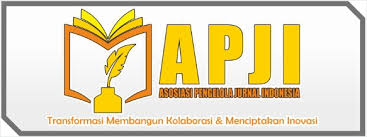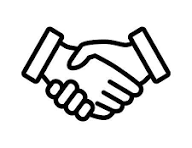Optimizing Student Participation in Waste Management as an Effort to Increase Awareness of a Waste-Free Environment
DOI:
https://doi.org/10.70610/iare.v2i2.503Keywords:
Student Participation, Waste-Free Environment, Waste ManagementAbstract
Waste management is crucial in maintaining environmental cleanliness and the health of living things around it. At SD Negeri Glagahwero 01, waste problems are a major concern in maintaining the cleanliness of the school environment. This community service aims to educate students about their role in waste management and increase awareness of a waste-free environment. This research method uses Participatory Action Research (PAR) through training with material presentation, active interaction, contextual learning, and discussions involving grade 6 students of SD Negeri Glagahwero 01 and the Kampus Mengajar 7 team. In the socialization, students were invited to recognize the types of waste and how to manage the waste around them. The results of the community service show that this activity has succeeded in attracting and educating students about waste management. They responded positively by answering the speakers' questions and providing examples of waste management that they can do correctly in their daily lives. In addition, students also understand the impact of good and bad waste management. Although the socialization is short, this activity can influence student behavior in the long term so that they are aware of their role in creating a waste-free environment.
References
Abdallah, M., Talib, M. A., Feroz, S., Nasir, Q., Abdalla, H., & Mahfood, B. (2020). Artificial intelligence applications in solid waste management: A systematic research review. Waste Management, 109, 231–246.
Akbar, A. A. N. M., Sulistyo, G. H., Megawati, F., & Nuralisaputri, V. V. (2022). Conceptions on authentic assessment: What Indonesian EFL teachers conceive. EnJourMe (English Journal of Merdeka) : Culture, Language, and Teaching of English, 7(1). https://doi.org/10.26905/enjourme.v7i1.7018
Anh Khoa, T., Phuc, C. H., Lam, P. D., Nhu, L. M. B., Trong, N. M., Phuong, N. T. H., Dung, N. Van, Tan-Y, N., Nguyen, H. N., & Duc, D. N. M. (2020). Waste management system using IoT-based machine learning in university. Wireless Communications and Mobile Computing, 2020, 1–13.
Antico, F. C., Wiener, M. J., Araya-Letelier, G., & Retamal, R. G. (2017). Eco-bricks: A sustainable substitute for construction materials. Revista de La Construccion, 16(3), 518–526. https://doi.org/10.7764/RDLC.16.3.518
Ap. Moreira, G., & Wanda Rutkoskwi, E. (2021). Zero Waste Strategy for a Green Campus. Journal of Sustainability Perspectives, 1, 367–373. https://doi.org/10.14710/jsp.2021.12027
Awasthi, A. K., Cheela, V. R. S., D’Adamo, I., Iacovidou, E., Islam, M. R., Johnson, M., Miller, T. R., Parajuly, K., Parchomenko, A., Radhakrishan, L., Zhao, M., Zhang, C., & Li, J. (2021). Zero waste approach towards a sustainable waste management. Resources, Environment and Sustainability, 3(January), 100014. https://doi.org/10.1016/j.resenv.2021.100014
Brydon-Miller, M., Kral, M., & Ortiz Aragón, A. (2020). Participatory action research: International perspectives and practices. International Review of Qualitative Research, 13(2), 103–111.
Chauhan, C., Singh, A., & Luthra, S. (2021). Barriers to industry 4.0 adoption and its performance implications: An empirical investigation of emerging economy. Journal of Cleaner Production, 285, 124809.
Chaves-Avila, R., & Gallego-Bono, J. R. (2020). Transformative policies for the social and solidarity economy: The new generation of public policies fostering the social economy in order to achieve sustainable development goals. The European and Spanish cases. Sustainability, 12(10), 4059.
Chowdhury, M. (2018). Emphasizing morals, values, ethics, and character education in science education and science teaching. MOJES: Malaysian Online Journal of Educational Sciences, 4(2), 1–16.
Darmawan, D., Alamsyah, T. ., & Rosmilawati, I. (2020). Participatory Learning and Action untuk Menumbuhkan Quality of Life pada Kelompok Keluarga Harapan di Kota Serang. Journal of Nonformal Education and Community Empowerment, 4(2), 160–169. https://doi.org/10.15294/pls.v4i2.41400
Faisal, P., & Kisman, Z. (2020). Information and communication technology utilization effectiveness in distance education systems. International Journal of Engineering Business Management, 12, 1–9. https://doi.org/10.1177/1847979020911872
Hasanah, Y. (2021). Eco enzyme and its benefits for organic rice production and disinfectant. Journal of Saintech Transfer, 3(2), 119–128. https://doi.org/10.32734/jst.v3i2.4519
Hemalatha, M., & Visantini, P. (2020). Potential use of eco-enzyme for the treatment of metal based effluent. IOP Conference Series: Materials Science and Engineering, 716(1). https://doi.org/10.1088/1757-899X/716/1/012016
Hikmah Harun, N., & Firdaus Mohamad, M. (2022). The Immunomodulatory effects of Zingiber officinale (Ginger): A Systematic Review. Research Journal of Pharmacy and Technology, 3776–3781. https://doi.org/10.52711/0974-360x.2022.00634
Jamiah, Y., Fatmawati, F., & Purwaningsih, E. (2019). Internalization of Students’ Nationalism Sense through Outbound Learning Based on Local Wisdom. JETL (Journal Of Education, Teaching and Learning), 4(2), 339–344. https://doi.org/10.26737/jetl.v4i2.1642
Matriano, E. A. (2020). Ensuring Student-Centered, Constructivist and Project-Based Experiential Learning Applying the Exploration, Research, Interaction and Creation (ERIC) Learning Model. International Online Journal of Education and Teaching, 7(1), 214–227.
Miliyanti, N., Rinaldy, R., & Alghifari, R. (2022). Application of Participatory Rural Appraisal (PRA) Techniques in Waste Problems in Sukamanis Village Kadudampit District. Jurnal Pengabdian Masyarakat Bestari, 1(9). https://doi.org/10.55927/jpmb.v1i9.2111
Mohamed, R. M. S. R., Al-Gheethi, A. A., & Yaakob, M. A. (2017). Recycling of solid wastes at kindergartens centers. Songklanakarin Journal of Science and Technology, 39(1), 69–75. https://doi.org/10.14456/sjst-psu.2017.8
Nabilah Mokhtar, Lim Zhi Xuan, Lokman, H. F., & Noor Hayati Che Mat, N. H. C. M. (2023). Theory, Literature Review, and Fun Learning Method Effectiveness in Teaching and Learning. International Journal of Social Science and Education Research Studies, 03(08), 1738–1744. https://doi.org/10.55677/ijssers/v03i8y2023-30
Nugraha, A. P., Wibisono, C., Satriawan, B., Indrayani, Mulyadi, & Damsar. (2022). The Influence Of Transformational Leadership, Job Crafting, Job Satisfaction, And Self-Efficacy On Job Performance Through Work Engagement Of State Civil Apparatus As An Intervening Variable In The Digital Era Of Cases In The Local Government Of Karimun R. Central European Management Journal, 30(3), 2336–2693.
Prabowo, P. A., Supriyono, B., Noor, I., & Muluk, M. K. (2021). Special autonomy policy evaluation to improve community welfare in Papua province Indonesia. International Journal of Excellence in Government, 2(1), 24–40. https://doi.org/10.1108/ijeg-06-2019-0011
Ripno, R., Nathalia, T. C., & Pramomo, R. (2021). Waste Management in Supporting Sustainable Tourism Case Study of Touris Destination Malioboro Yogyakarta. International Journal of Social, Policy and Law, 2(2), 1–4.
Rizki, S. N., & Wahdah, N. (2022). Training of the Art Reading Al Qur’an of Sidomulyo Community at Tumbang Tahai Village. International Journal of Community Engagement Payungi, 2(1), 43–50.
Ryan, R. M., & Deci, E. L. (2022). Self-determination theory. In Encyclopedia of quality of life and well-being research (pp. 1–7). Springer.
Sebsibe, A. S., Argaw, A. S., Bedada, T. B., & Mohammed, A. A. (2023). Swaying pedagogy: A new paradigm for mathematics teachers education in Ethiopia. Social Sciences and Humanities Open, 8(1), 1–10. https://doi.org/10.1016/j.ssaho.2023.100630
Shkolnikov, V. M., Andreev, E. M., Tursun-zade, R., & Leon, D. A. (2019). Patterns in the relationship between life expectancy and gross domestic product in Russia in 2005–15: a cross-sectional analysis. The Lancet Public Health, 4(4), e181–e188. https://doi.org/10.1016/S2468-2667(19)30036-2
Zebua, R. S. Y. (2021). The Implementation of Character Building to Improve Resident Participation in Waste Management. IOP Conference Series: Earth and Environmental Science, 810(1), 12025.
Downloads
Published
How to Cite
Issue
Section
License
Copyright (c) 2024 Meidinda Ardiani Putri, Inge Wiliandani Setya Putri, Arik Aguk Wardoyo, Alyya Oktavia Durunnafis, Salma Salsabila

This work is licensed under a Creative Commons Attribution-NonCommercial-ShareAlike 4.0 International License.
License: CC BY-SA 4.0 (Creative Commons Attribution-ShareAlike 4.0 International License)






 MoU
MoU 


